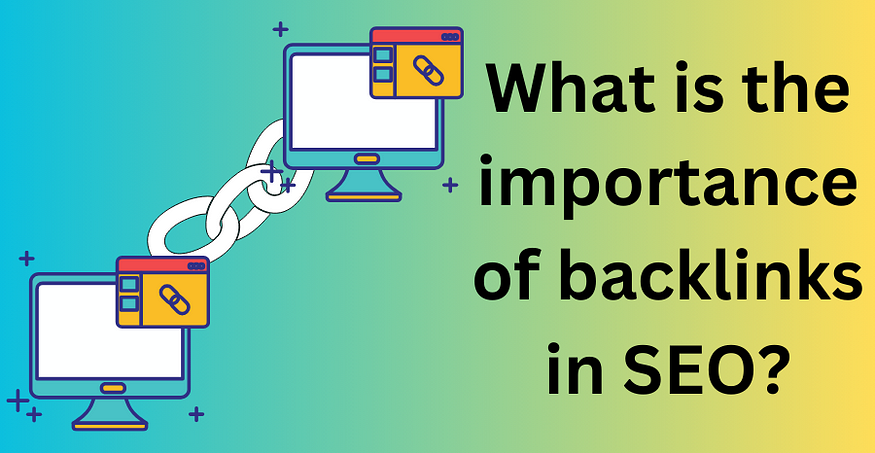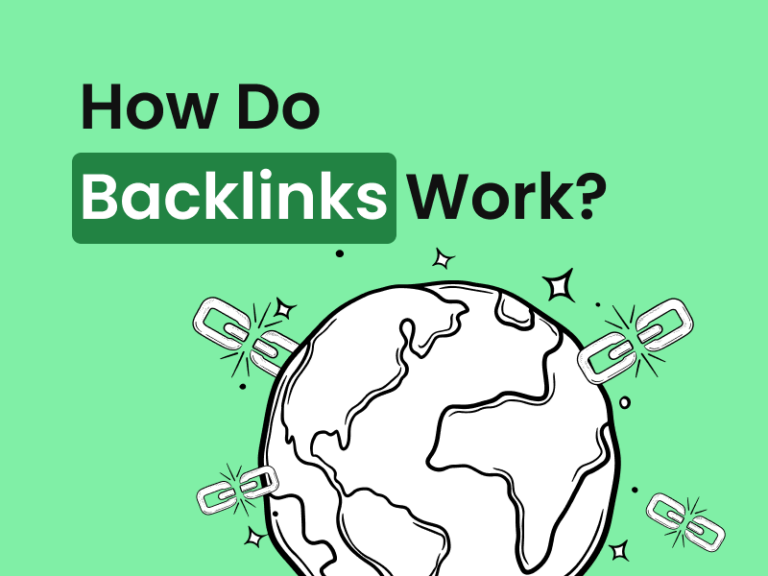Effective Backlink Strategies for Better SEO
Backlinks are a crucial element of any successful SEO strategy. They serve as a vote of confidence from one site to another, helping search engines understand the authority and relevance of your content. The more high-quality backlinks your website has, the better it will perform in search engine rankings. In this article, we’ll explore effective backlink strategies that can significantly enhance your SEO efforts.
1. Understand the Importance of Backlinks

Before diving into strategies, it’s essential to grasp why backlinks are so important. Backlinks act as endorsements from other websites. When a reputable site links to your content, search engines view this as a signal that your content is valuable and trustworthy. This can lead to higher rankings in search results.
According to Google’s Search Quality Evaluator Guidelines, backlinks are one of the top factors in determining search rankings. Therefore, understanding how to acquire and manage them is key to improving your SEO performance.
2. Focus on Quality Over Quantity

Not all backlinks are created equal. High-quality backlinks from authoritative sites are far more valuable than numerous low-quality links. Search engines prioritize backlinks from websites that have strong domain authority, relevance to your niche, and trustworthiness.
For example, obtaining a backli
Links from a well-respected site like Moz or Ahrefs will carry much more weight than links from lesser-known sites.
3. Create High-Quality Content
One of the most effective ways to attract backlinks is by creating exceptional content that people want to link to. High-quality, informative, and unique content naturally attracts links. When you produce content that provides value, other websites will be more likely to reference and link to it.
Types of content that typically earn backlinks include:
- In-depth guides and tutorials: Comprehensive resources that cover a topic extensively, such as The Beginner’s Guide to SEO by Moz.
- Original research and data: Studies, surveys, or reports that offer new insights or statistics.
- Infographics: Visual content that is easy to share and can quickly convey information.
4. Guest Blogging

Guest blogging involves writing articles for other websites within your niche. In return, you typically receive a backlink to your site. This strategy is effective for several reasons:
- It introduces your content to a new audience.
- It builds relationships with other bloggers and site owners.
- It helps you earn high-quality backlinks from reputable sites.
To succeed with guest blogging, focus on high-authority sites relevant to your niche. For example, if you run a digital marketing blog, guest posting on a site like Search Engine Journal can be highly beneficial.
5. Leverage Broken Link Building
Broken link building is a technique where you find broken links on other websites and offer your content as a replacement. This strategy benefits both parties: the site owner fixes a broken link, and you gain a backlink.
Here’s how to do it:
- Identify broken links: Use tools like Ahrefs or Check My Links to find broken links on websites relevant to your niche.
- Create or use relevant content: Ensure that you have or can create content that appropriately replaces the broken link.
- Reach out to the site owner. Politely inform them of the broken link and suggest your content as a replacement.
6. Utilize Resource Pages
Resource pages are pages on websites that curate links to valuable resources within a particular niche. Getting your content featured on these pages can result in high-quality backlinks.
To find resource pages,
- Use search queries: Search for terms like “keyword + resources” or “keyword + useful links” in Google.
- Create valuable content. Ensure that your content is genuinely useful and relevant to the topic of the resource page.
- Reach out to the site owner: Suggest your content as an addition to their resource page, explaining how it adds value.
7. Engage in Link Roundups
Link roundups are blog posts that feature a collection of links to articles, tools, or resources on a specific topic. Being included in a roundup can provide a valuable backlink from a relevant site.
To get featured in link roundups:
- Search for roundups: Use Google to find link roundups by searching “keyword + roundup” or “best of keyword + month/year.”
- Reach out to the curator: If you have high-quality content that fits the theme of the roundup, pitch it to the person curating the list.
8. Use Social Media for Link Building

While social media links themselves don’t have a direct impact on SEO, they can drive traffic to your content and increase the likelihood of earning backlinks. Sharing your content on platforms like Twitter, LinkedIn, and Facebook can help it gain visibility and attract the attention of influencers and other bloggers.
For instance, by sharing a new blog post on Twitter and tagging industry influencers, you might encourage them to link to your content if they find it valuable.
9. Monitor Your Backlinks
It’s essential to regularly monitor the backlinks you receive to ensure they are from reputable sources. Tools like Google Search Console and Ahrefs can help you track your backlinks and identify any that might be harmful to your site’s SEO.
If you find toxic or spammy backlinks, use the disavow tool in Google Search Console to prevent them from affecting your SEO.
10. Build Relationships with Influencers and Bloggers
Building relationships with influencers and bloggers in your niche can lead to natural backlink opportunities. Engage with them on social media, comment on their blogs, and offer to collaborate on projects. Over time, these relationships can lead to organic backlinks as they begin to reference your content in their own.
Conclusion
Backlinks remain a cornerstone of effective SEO, and employing the right strategies can significantly enhance your website’s search engine rankings. By focusing on quality over quantity, creating valuable content, and leveraging techniques like guest blogging, broken link building, and resource pages, you can steadily build a robust backlink profile.
Remember that backlink building is a long-term strategy. Patience and consistency are key. With time and effort, your website’s authority and rankings will improve, driving more organic traffic and boosting your online presence.
FAQs
1. What is the difference between DoFollow and NoFollow backlinks?
Answer:
DoFollow and NoFollow are attributes that determine how search engines treat a backlink. A DoFollow backlink allows search engines to follow the link and pass on “link juice,” which can help improve your site’s SEO rankings. In contrast, a NoFollow backlink instructs search engines not to follow the link or pass on any link equity. While NoFollow links don’t directly impact SEO, they can still drive traffic and increase brand visibility.
2. How can I get high-quality backlinks for my website?
Answer:
To acquire high-quality backlinks, focus on creating valuable, shareable content that others will want to link to. Strategies include guest blogging on reputable sites, conducting original research or case studies, engaging in broken link building, and reaching out to influencers and bloggers in your niche. Additionally, contributing to industry forums, participating in interviews, and getting listed on resource pages can also help you earn quality backlinks.
3. Can too many backlinks harm my website’s SEO?
Answer:
Yes, acquiring too many low-quality or spammy backlinks can harm your website’s SEO. Search engines may view a sudden influx of poor-quality links as an attempt to manipulate rankings, leading to penalties that can decrease your site’s visibility in search results. It’s crucial to focus on earning high-quality, relevant backlinks from reputable sources and to regularly monitor your backlink profile for any harmful links.
other posts https://makeemoneyy.com/why-10web-is-solution-for-lightning-fast-sites/ chatgpt https://openai.com/blog/chatgpt/

